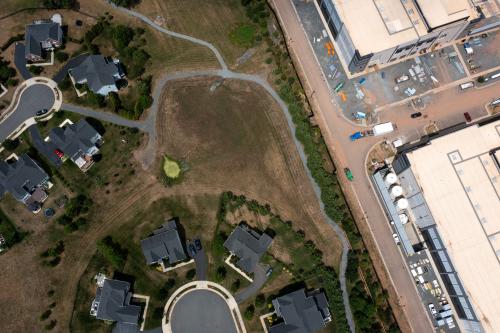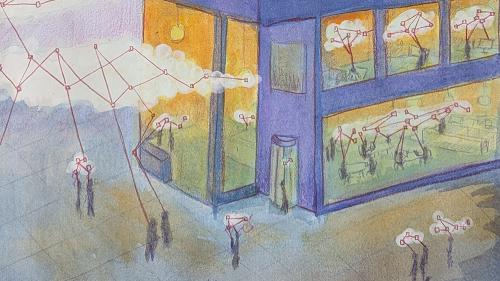Universities and research and development partners in Chicago are positioning the city to be a test bed for innovation, with the goal of driving breakthroughs in urban technology and practice that can be replicated in other cities.
A prime example is CityWorks, a new project focused on developing cutting-edge approaches to the infrastructure of energy management, transportation, water, and other areas. Its founding partners include the city of Chicago, academic and civic institutions, and industry heavyweights like Microsoft, Accenture, ComEd, and Siemens.
CityWorks is a project of UI LABS, a public-private R&D collaborative—the UI stands for university and industry— geared to identifying specific challenges in which “many to many” partnerships can pave the way for research in areas too large or complex for any one player to assume the risk or muster the needed R&D capacity. CityWorks partners will collaborate to develop new technologies and products, launch demonstration projects designed to fill market gaps, and catalyze rapid commercialization and deployment. UI LABS is also home to the Digital Manufacturing and Design Innovation Institute, which has a similar approach for new models of production.
While the demonstration projects that the new lab will tackle have not been formally announced, they will address some of Chicago’s biggest needs and opportunities. Water-related infrastructure, for example, is of keen interest in City Hall, given the city’s location on the banks of Lake Michigan. And with the mobility challenges posed by the scale of a city like Chicago, a strong transportation-related project would be the “holy grail,” said Katie Olson, who is leading new program development at UI LABS.
Elsewhere in Chicago, the University of Chicago’s new Urban Labs network will build on the school’s existing expertise in crime reduction and urban education with new centers focused on health, energy and the environment, and poverty. Functioning as true laboratories of innovation, each of these programs will identify research areas and then work with local partners to test implementation and evaluate results.
In tandem with the new lab initiatives, the university launched the Urban Labs Innovation Challenge, a competition for urban policy solutions. Public, private, and nonprofit organizations are eligible to compete for up to $1 million for two years to support the development of initiatives within the Urban Labs’ new areas of focus.
Each of those initiatives represents a push by Chicago to stand out in urban development and innovation. From the Burnham Plan to the Chicago School of urban ecology to community organizing, the city’s leaders have always made their metropolis a laboratory for change while influencing urban strategies around the country.
The Brookings Institution is committed to quality, independence, and impact.
We are supported by a diverse array of funders. In line with our values and policies, each Brookings publication represents the sole views of its author(s).



Commentary
Chicago’s innovation labs: The ‘Second City’ continues to reinvent urban policy
May 14, 2015